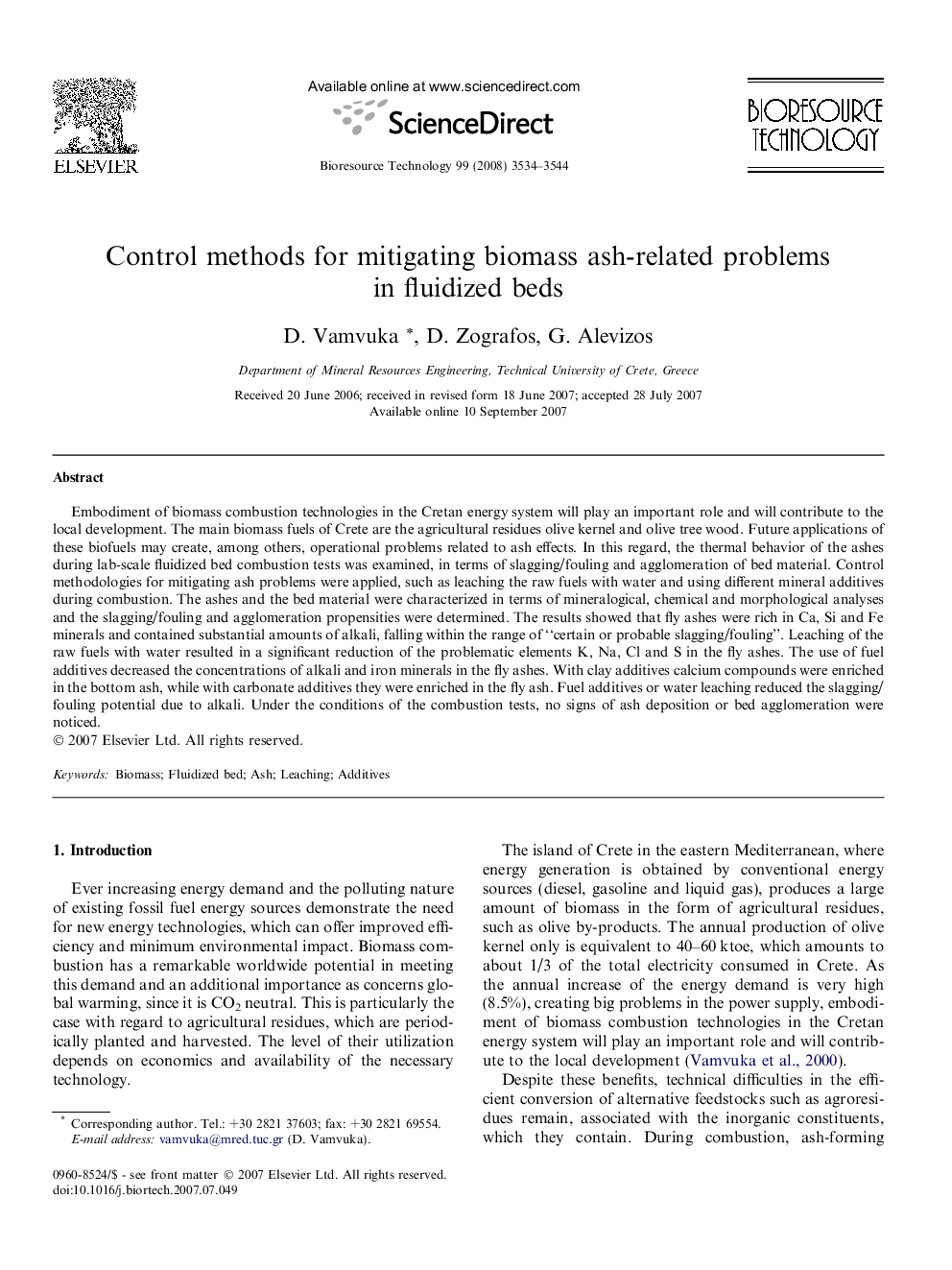| Article ID | Journal | Published Year | Pages | File Type |
|---|---|---|---|---|
| 686341 | Bioresource Technology | 2008 | 11 Pages |
Embodiment of biomass combustion technologies in the Cretan energy system will play an important role and will contribute to the local development. The main biomass fuels of Crete are the agricultural residues olive kernel and olive tree wood. Future applications of these biofuels may create, among others, operational problems related to ash effects. In this regard, the thermal behavior of the ashes during lab-scale fluidized bed combustion tests was examined, in terms of slagging/fouling and agglomeration of bed material. Control methodologies for mitigating ash problems were applied, such as leaching the raw fuels with water and using different mineral additives during combustion. The ashes and the bed material were characterized in terms of mineralogical, chemical and morphological analyses and the slagging/fouling and agglomeration propensities were determined. The results showed that fly ashes were rich in Ca, Si and Fe minerals and contained substantial amounts of alkali, falling within the range of “certain or probable slagging/fouling”. Leaching of the raw fuels with water resulted in a significant reduction of the problematic elements K, Na, Cl and S in the fly ashes. The use of fuel additives decreased the concentrations of alkali and iron minerals in the fly ashes. With clay additives calcium compounds were enriched in the bottom ash, while with carbonate additives they were enriched in the fly ash. Fuel additives or water leaching reduced the slagging/fouling potential due to alkali. Under the conditions of the combustion tests, no signs of ash deposition or bed agglomeration were noticed.
